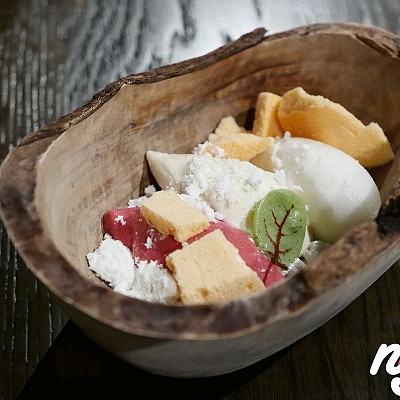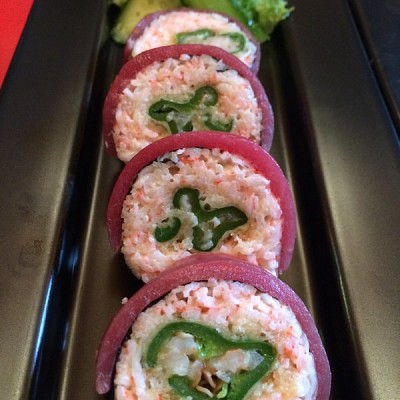Introduction to unique restaurant concepts
When starting a unique restaurant concept, it's essential to think about what sets your restaurant apart from others. Unique restaurant concepts focus on offering an experience that customers can’t find elsewhere. This can include themed restaurants, fusion cuisine, or innovative dining experiences. Creating a unique restaurant concept involves identifying your target audience, understanding market trends, and focusing on creating a memorable dining experience. Innovative, exciting, and personalized concepts are becoming increasingly popular in the food industry.

Trending restaurant concepts
Restaurants with unique concepts are gaining popularity. In recent years, we have seen an increase in restaurants offering experiential dining, such as interactive dining experiences, themed restaurants, and immersive pop-up dining events. These innovative concepts aim to provide customers with more than just a meal, offering an unforgettable experience that keeps them coming back for more. Sustainability-focused restaurants are also on the rise, emphasizing locally sourced ingredients, eco-friendly practices, and a commitment to reducing food waste. Foodpreneurs looking to capitalize on current trends should consider incorporating these unique concepts into their restaurant business to attract and retain customers.
Identifying a niche for your concept
When developing a unique restaurant concept, it's essential to identify a niche that will set your establishment apart. Consider the following tips:
- Research and observe: Start by researching and observing the current restaurant market to identify gaps and unmet needs.
- Target audience: Consider the demographic and psychographic characteristics of your target audience. What are their preferences and desires?
- Differentiation: Determine what makes your concept unique and appealing. What sets it apart from existing restaurants?
- Market demand: Assess the market demand for your niche. Is there a sizeable and sustainable customer base for your concept?
- Feasibility: Evaluate the feasibility of your chosen niche in terms of resources, location, and market trends.
Identifying a niche for your restaurant concept is crucial to its success and long-term viability.
Design and ambiance considerations
When creating a unique restaurant concept, it's essential to carefully consider the design and ambiance. This includes factors such as the layout of the space, the color scheme, lighting, and overall decor. You want to create an atmosphere that reflects the theme or concept of your restaurant and resonates with your target audience. Additionally, the ambiance should complement the type of cuisine you plan to offer, enhancing the overall dining experience for your customers.
Creating a unique menu
When creating a unique menu for your restaurant, it's essential to consider factors such as the target audience's preferences, local food trends, and your own culinary expertise. Here are some tips to help you in creating a standout menu:
- Identify Your Niche: Determine the unique selling point of your restaurant and align your menu with it. This could be a focus on a specific cuisine, ingredient, or a fusion of flavors.
- Research Market Trends: Stay updated on the latest food and dining trends in your area to understand what customers are looking for. This can inspire innovative menu items that cater to current demands.
- Balance Familiarity and Creativity: While uniqueness is important, it's also essential to offer dishes that are approachable to a wide range of customers. Balancing creativity with familiar elements can help attract a diverse clientele.
- Consider Dietary Preferences: With the growing emphasis on health and wellness, incorporating vegetarian, vegan, and gluten-free options is crucial in catering to a broader customer base.
- Pricing Strategy: Carefully price your unique menu items to reflect their value and appeal to your target market. Balancing profitability with customer satisfaction is key.
By considering these points, you can craft a distinctive and appealing menu that sets your restaurant apart in the competitive food industry.
Marketing your concept
When marketing your unique restaurant concept, it's crucial to focus on creating a strong brand identity and telling a compelling story. Here are some essential tips to effectively promote your restaurant concept:
- Craft a Compelling Narrative: Highlight the story and inspiration behind your restaurant concept to connect with your audience on an emotional level.
- Engage with Your Audience: Utilize social media platforms, email marketing, and local events to engage with potential customers and build a loyal fan base.
- Collaborate with Influencers: Partner with local influencers and food bloggers to showcase your unique concept and reach a wider audience.
- Create an Appealing Visual Identity: Invest in professional photography and design to create visually appealing content that reflects the essence of your restaurant concept.
- Offer Unique Experiences: Organize special events, tastings, or unique dining experiences to attract attention and create buzz around your concept.
Budgeting and financial planning
When starting a unique restaurant concept, it's crucial to have a solid budget and financial plan in place. Here are some essential tips for foodpreneurs:
- Understand Your Costs: Carefully consider all the expenses involved in setting up and running your restaurant, including rent, equipment, supplies, and staffing.
- Create a Detailed Budget: Develop a comprehensive budget that outlines your expected costs and projected income. This will help you manage your finances effectively and identify areas where you can save money.
- Seek Financial Advice: Consider consulting with a financial advisor or accountant to ensure that your budget and financial plan are realistic and sustainable.
- Stay Flexible: Be prepared to adjust your budget and financial plan as needed based on the changing needs of your business and the restaurant industry.
By prioritizing budgeting and financial planning, foodpreneurs can set themselves up for success in the competitive world of unique restaurant concepts.
Legal and regulatory aspects
Before delving into your unique restaurant concept, it's important to address the legal and regulatory aspects. Licensing and permits are essential for operating a restaurant, and you'll need to consider health department regulations, alcohol licensing if you plan to serve drinks, and business permits specific to your location. Employment laws are also crucial – be sure to understand regulations related to hiring and managing staff, as well as any required insurance and benefits. Additionally, food safety standards must be rigorously met to ensure the health and well-being of your customers. Always consult legal professionals or industry experts to navigate these important matters effectively.
Hiring and training staff
When hiring staff, look for individuals who are passionate about the concept of your restaurant. Good communication skills and a positive attitude are key. When training your staff, focus on delivering excellent customer service, product knowledge, and the unique selling points of your restaurant. Ensure that your team embodies the values and vision of your restaurant to provide a consistent and memorable experience for your customers.
Conclusion and next steps
As you conclude your exploration of unique restaurant concepts, the next step is to begin turning your ideas into reality. Here are some essential pieces of advice for foodpreneurs to consider:
- Business Planning: Develop a comprehensive business plan that outlines your concept, target audience, marketing strategy, and financial projections.
- Market Research: Conduct thorough market research to understand your target market, competition, and potential challenges.
- Financial Considerations: Secure financing for your restaurant concept, whether through personal funds, investors, or loans. It's crucial to have a clear understanding of your financial requirements.
- Regulatory Compliance: Familiarize yourself with the legal and regulatory requirements for operating a restaurant in your area, including permits, licenses, and health codes.
- Networking and Collaboration: Build relationships with local suppliers, chefs, and industry professionals who can support and enhance your restaurant concept.
Remember, the journey from concept to a successful restaurant is a challenging but rewarding one. Stay focused, stay passionate, and keep learning as you strive to bring your unique restaurant concept to life!






































